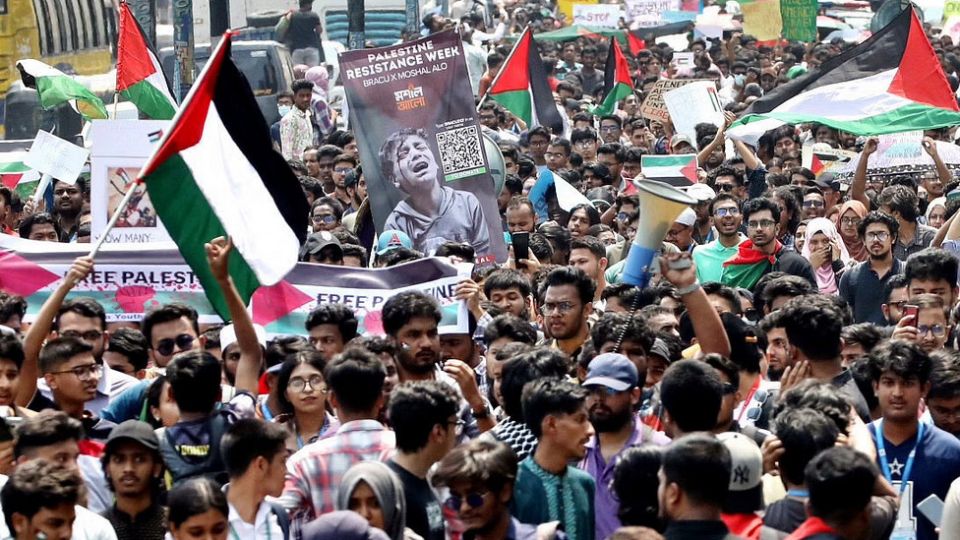April 9, 2025
DHAKA – The streets of Bangladesh have once again echoed with chants for justice — this time, in solidarity with Palestine. As images of bombed hospitals and lifeless children pour in from Gaza, the anger here is real, raw, and deeply human. Our people, known for their empathy and resilience, are standing up. But in that fury, some lines are being crossed — and the consequences may be more damaging than empowering.
Recently, groups of protesters, enraged by the ongoing Israeli assault, took their frustrations out on local outlets of foreign brands, vandalising properties they associate with Western complicity. These acts were carried out in the name of Palestine. But the truth is far more complicated — and far more tragic.
Because when glass shatters on a local shop floor in Dhaka or Sylhet, it’s not Tel Aviv that feels the tremor. It’s the Bangladeshi workers cleaning up the mess. It’s the local staff — our brothers, sisters, students — who depend on those jobs. These shops aren’t foreign embassies or arms manufacturers. They’re often franchises run by Bangladeshis, staffed by Bangladeshis, serving Bangladeshis.
Solidarity with Palestine is not only justified — it’s urgent. The crisis in Gaza is a human catastrophe, and silence is complicity. You want to do something. Shout, march, boycott, rage.
Totally valid. Rage is sometimes the only sane response.
But… whose bright idea was it to take that anger out on a random store in your own neighbourhood? Seriously, who started this “break windows = save Palestine” trend?
What does breaking a glass door achieve? Does it end apartheid? Or does it just turn into another viral video that makes the movement look bad, loses public support, and gives the other side an easy headline? We have every right to be furious. But rage without strategy is just noise. It burns quickly — and often, it burns the wrong things.
You want to boycott? Great. Stop buying products from companies with real, traceable ties to harmful policies.
Want to make noise? Perfect. Join rallies, chant your heart out, make the streets echo.
Want to support Palestine? Beautiful. Donate. Share verified news. Write. Educate.
But when you start throwing rocks at a glass door or torching a food court — you’re not helping Palestine.
You’re just giving the other side a great excuse to say, “See? They’re violent.”
History has shown us the power of strategic resistance. From the Salt March in India to the Montgomery Bus Boycott in the U.S., protest movements succeeded not because they were loud, but because they were smart. They disrupted systems, not storefronts. They built networks, not fear. They changed the world not by breaking things, but by breaking systems. In Bangladesh, we have our own examples of strategic resistance that reshaped history. The Language Movement of 1952 stands as a powerful example. When students in Dhaka stood up for their right to speak Bengali, their non-violent resistance led to widespread support and, ultimately, the recognition of Bangla as one of the state languages of Pakistan. Similarly, during the Liberation War of 1971, the fight for independence wasn’t just about loud protests, but about organised resistance, building alliances, and strategically dismantling an oppressive system. These movements didn’t succeed through mindless violence; they succeeded because they were focused, well-planned, and rooted in a clear sense of justice.
In Bangladesh, we have a powerful platform for global solidarity. But we need to sharpen that power. Boycotts can work — but only when targeted, sustained, and grounded in economic analysis. Marches can matter — but only when they elevate the cause, not undermine it.
The enemy is a brutal war machine built on oppression, not a local sales counter managed by a 22-year-old student trying to pay for tuition.
If we truly care about justice, we must protest in ways that build justice — not destroy livelihoods. Anger is valid. But strategy is powerful.


